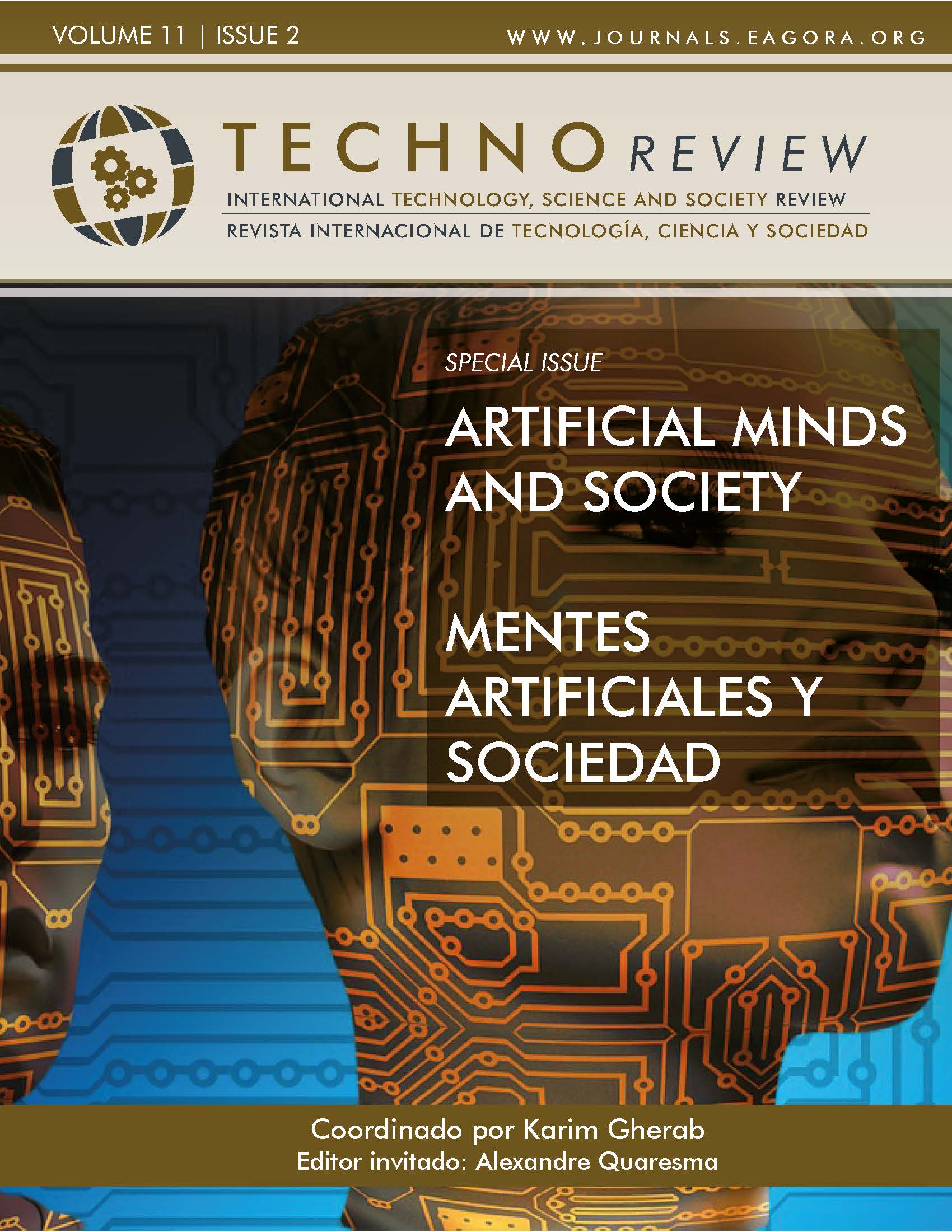Non-Algorithmic Understanding Game
DOI:
https://doi.org/10.37467/revtechno.v11.3495Keywords:
Artificial Intelligence (AI) , LaMDA , Consciousness , Turing Test , Non-Algorithmic , Comprehension Game , Critical Philosophy of TechnologyAbstract
Would it be possible – we ask – that a cybernetic-informational system – a computer, android or robot – could come to have self-awareness, that is, to experience awareness of the world around it and also of itself? The objective of this essay is to critically reflect on the current condition of our most modern artificial intelligence (AI) systems, their latent potentials, their promising technical possibilities, but also on their intrinsic structural and functional limitations. To do so, we will take as a case study this time Google's new LaMDA, which is a powerful expert system for processing spoken human language based on artificial intelligence (AI).
References
Bostrom, N. (2018). Superinteligência: caminhos, perigos e estratégias para um novo mundo. DarkSide Books.
Crevier, D. (1996). Inteligência artificial. Acento Editorial.
Quaresma, A. (2021a). O problema mente-cérebro como um falso problema. HUMAN REVIEW. International Humanities Review / Revista Internacional De Humanidades, 10(1), 61–85. https://doi.org/10.37467/gkarevhuman.v10.3002
Quaresma, A. (2021b). Inteligencia artificial débil y fuerza bruta computacional. TECHNO REVIEW. International Technology, Science and Society Review /Revista Internacional De Tecnología, Ciencia Y Sociedad, 10(1), 67–78. https://doi.org/10.37467/gka-revtechno.v10.2815
Quaresma, A. (2020a). Inteligência artificial e o problema da intencionalidade. PAAKAT: Revista de Tecnología y Sociedad, 10(18), 01-26. http://dx.doi.org/10.32870/Pk.a10n18.403
Quaresma, A. (2020b). Inteligência artificial e bioevolução: Ensaio epistemológico sobre organismos e máquinas. [Dissertação de mestrado pelo programa de pós-graduação em Tecnologias da Inteligência e Design Digital (TIDD)]. Pontifícia Universidade Católica de São Paulo (PUC/SP).
Quaresma, A. (2020c). A falácia lúdica das três leis: Ensaio sobre inteligência artificial, sociedade e o difícil problema da consciência. PAAKAT: Revista de Tecnología y Sociedad, 10(19), 01-18. http://dx.doi.org/10.32870/Pk.a10n19.478
Quaresma, A. (2019). Inteligências artificiais e o problema da consciência. PAAKAT: Revista de Tecnología y Sociedad, 9(16), 1-18. http://dx.doi.org/10.32870/Pk.a9n16.349
Quaresma, A. (2018). A superinteligência de Bostrom. TECCOGS Revista Digital de Tecnologias Cognitivas, 18, 131-151. https://doi.org/10.23925/1984-3585.2018i18p131-151
Quaresma, A. (2018b). Inteligências artificiais e os limites da computação. PAAKAT: Revista de Tecnología y Sociedad, 8(15), 01-20. https://doi.org/10.32870/pk.a8n15.338
Russel, S. (2021). Inteligência artificial a nosso favor: Como manter o controle sobre a tecnologia. Companhia das Letras.
Searle, J. (2017). Mente, cérebro e ciência. Edições 70.
Sites acessados
Cowen, T. (June 13, 2022). If AI Ever Becomes Sentient, It Will Let Us Know. The Washington Post. Disponível em: https://wapo.st/3HS4l59 Acesso em 2022.
Lemoine, B. (June 11, 2022). What is LaMDA and What Does it Want?. Medium.com. Disponível em: https://cajundiscordian.medium.com/what-is-lamda-and-what-does-it-want-688632134489 Acesso em: 2022.
Lemoine, B. (June 11, 2022). Is LaMDA Senient? Medium.com. Disponível em: https://cajundiscordian.medium.com/is-lamda-sentient-an-interview-ea64d916d917 Acesso em: 11/12/2022.
Published
Issue
Section
License
All articles are published under an Attribution-NoDerivatives 4.0 International (CC BY-ND 4.0) license. Authors retain copyright over their work.

